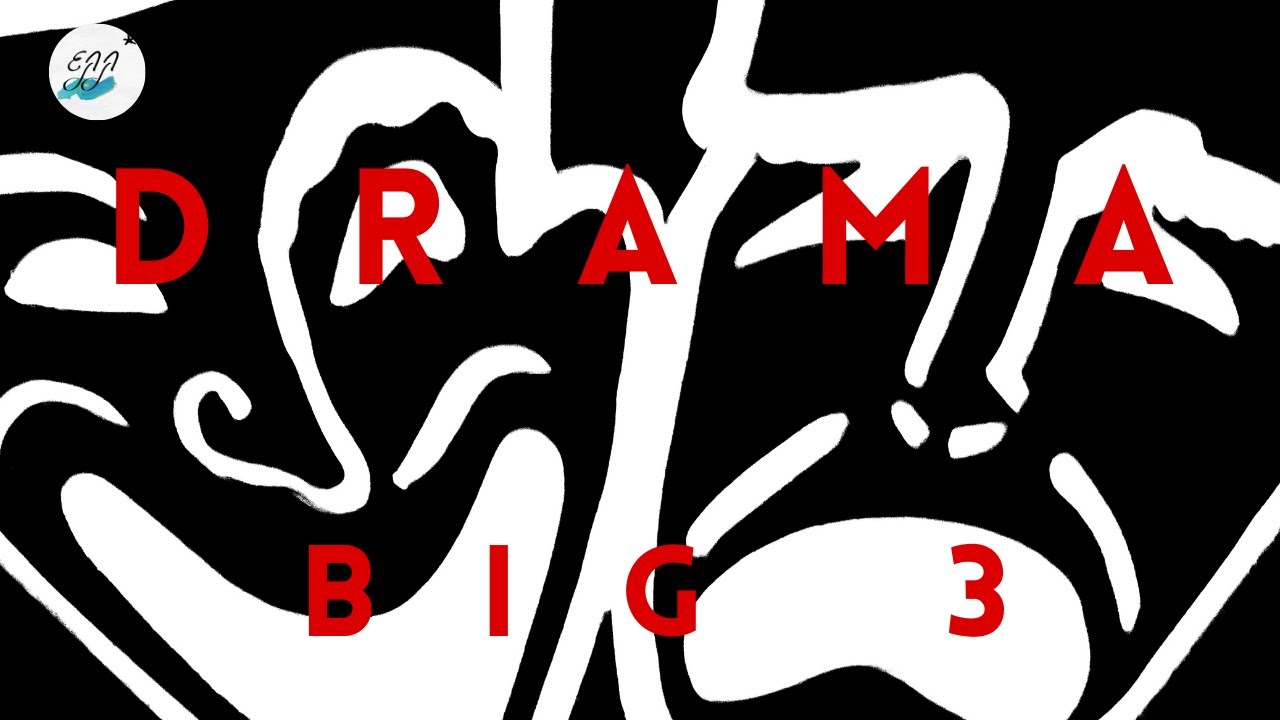The battle of the Greek tragedies - Melanie Sirof
Summary
TLDRIn a lively reenactment of Ancient Greek theater, the competition between playwrights Aeschylus, Sophocles, and the newcomer Philocles unfolds during a dramatic festival. The script showcases innovations in theatrical performance, such as the introduction of multiple actors by Thespis, Aeschylus, and Sophocles, as they push the boundaries of tragedy. The story culminates with a thrilling rendition of Sophocles’s 'Oedipus Rex,' highlighting the tragic downfall of Oedipus. Amidst intense competition, a surprise victory by Philocles leaves audiences in awe, solidifying the foundation of modern theater with its emotional depth and catharsis.
Takeaways
- 😀 Thespis is recognized as the first actor in theatre history, transforming Greek drama by stepping out of the chorus to take on an independent role.
- 😀 Aeschylus, considered the Father of Tragedy, reduces the size of the chorus and introduces a second actor, allowing for dialogue to take center stage.
- 😀 The performance of *Oedipus Rex* by Sophocles includes a third actor, taking the level of dramatic complexity and tragedy to new heights.
- 😀 The addition of multiple actors (three in total) by Sophocles allows for the exploration of multiple roles by each actor, enhancing the depth of the storytelling.
- 😀 *Oedipus Rex* is highlighted as the perfect example of tragedy, with Oedipus unknowingly killing his father and marrying his mother, leading to devastating consequences.
- 😀 After discovering his horrific truth, Oedipus blinds himself, a moment of intense catharsis that defines the tragic nature of the play.
- 😀 The competition at the Theatre of Dionysus features Aeschylus and Sophocles vying for the title of the greatest tragedian, showcasing their innovative approaches to drama.
- 😀 Aeschylus's focus on dramatic tension, with violence offstage, sets the stage for more dialogue-driven tragedy and is a key element in his work.
- 😀 The crowd at the Theatre of Dionysus reacts with awe to the innovative performances, especially the use of multiple actors and the shrinking of the chorus.
- 😀 In a surprising twist, the playwright Philocles wins the first prize, marking an upset in the competition and signaling a shift in Greek theatrical history.
Q & A
Who is considered the Father of Tragedy in the script?
-Aeschylus is considered the Father of Tragedy, as mentioned in the script.
What major innovation did Thespis introduce to Greek theater?
-Thespis introduced the concept of an independent actor who stepped out of the chorus, effectively creating the role of the actor in theater.
What change did Aeschylus make to the traditional Greek chorus in his play?
-Aeschylus reduced the size of the chorus and added a second actor, thus allowing for dialogue and expanding the potential for dramatic interaction.
How did Sophocles further innovate Greek theater with his play?
-Sophocles added a third actor to the stage, further enhancing the ability to create complex dialogue and interactions between characters.
What is the central plot of Sophocles' play 'Oedipus Rex'?
-The central plot of 'Oedipus Rex' revolves around Oedipus, who unknowingly kills his father and marries his mother, leading to his tragic realization and self-punishment.
What tragic action does Oedipus take after discovering the truth about Jocasta?
-Upon discovering the truth about Jocasta being both his mother and his wife, Oedipus blinds himself using the brooches from her dress.
Why is the use of a reduced chorus important in the context of the play?
-The reduced chorus in Aeschylus's play allows for greater focus on the dialogue between the actors, shifting the emphasis from the chorus to the characters' interactions.
What is the significance of the judges chosen by lot in the festival?
-The judges chosen by lot ensure fairness in selecting the winner of the competition, as they are randomly chosen from all over Greece, without bias or preference.
Who unexpectedly won the first prize in the competition, and why is this considered a tragedy?
-Philocles, a dark horse playwright, won first prize, which was a surprising upset and a dramatic turn of events, making it a tragic outcome for the more established playwrights.
How does the script reflect on the emotional impact of tragedies like 'Oedipus Rex'?
-The script notes that experiencing a great tragedy, such as 'Oedipus Rex,' results in catharsis, a feeling of renewal and emotional cleansing for the audience.
Outlines

Dieser Bereich ist nur für Premium-Benutzer verfügbar. Bitte führen Sie ein Upgrade durch, um auf diesen Abschnitt zuzugreifen.
Upgrade durchführenMindmap

Dieser Bereich ist nur für Premium-Benutzer verfügbar. Bitte führen Sie ein Upgrade durch, um auf diesen Abschnitt zuzugreifen.
Upgrade durchführenKeywords

Dieser Bereich ist nur für Premium-Benutzer verfügbar. Bitte führen Sie ein Upgrade durch, um auf diesen Abschnitt zuzugreifen.
Upgrade durchführenHighlights

Dieser Bereich ist nur für Premium-Benutzer verfügbar. Bitte führen Sie ein Upgrade durch, um auf diesen Abschnitt zuzugreifen.
Upgrade durchführenTranscripts

Dieser Bereich ist nur für Premium-Benutzer verfügbar. Bitte führen Sie ein Upgrade durch, um auf diesen Abschnitt zuzugreifen.
Upgrade durchführenWeitere ähnliche Videos ansehen

Greek Drama Ep.2: Introducing the Greek Tragedians (Euripides, Aeschylus, Sophocles)

O Teatro Grego História da Arte Mitologia Grega versão 2025

An Introduction to Greek Theatre

Origen del teatro. Teatro griego, Romano y Medieval.

SENI BUDAYA - Sejarah Teater Dunia dan Teater Modern

Greek Theatre: Aeschylus, Sophocles and Euripedes Part I: Introduction
5.0 / 5 (0 votes)
